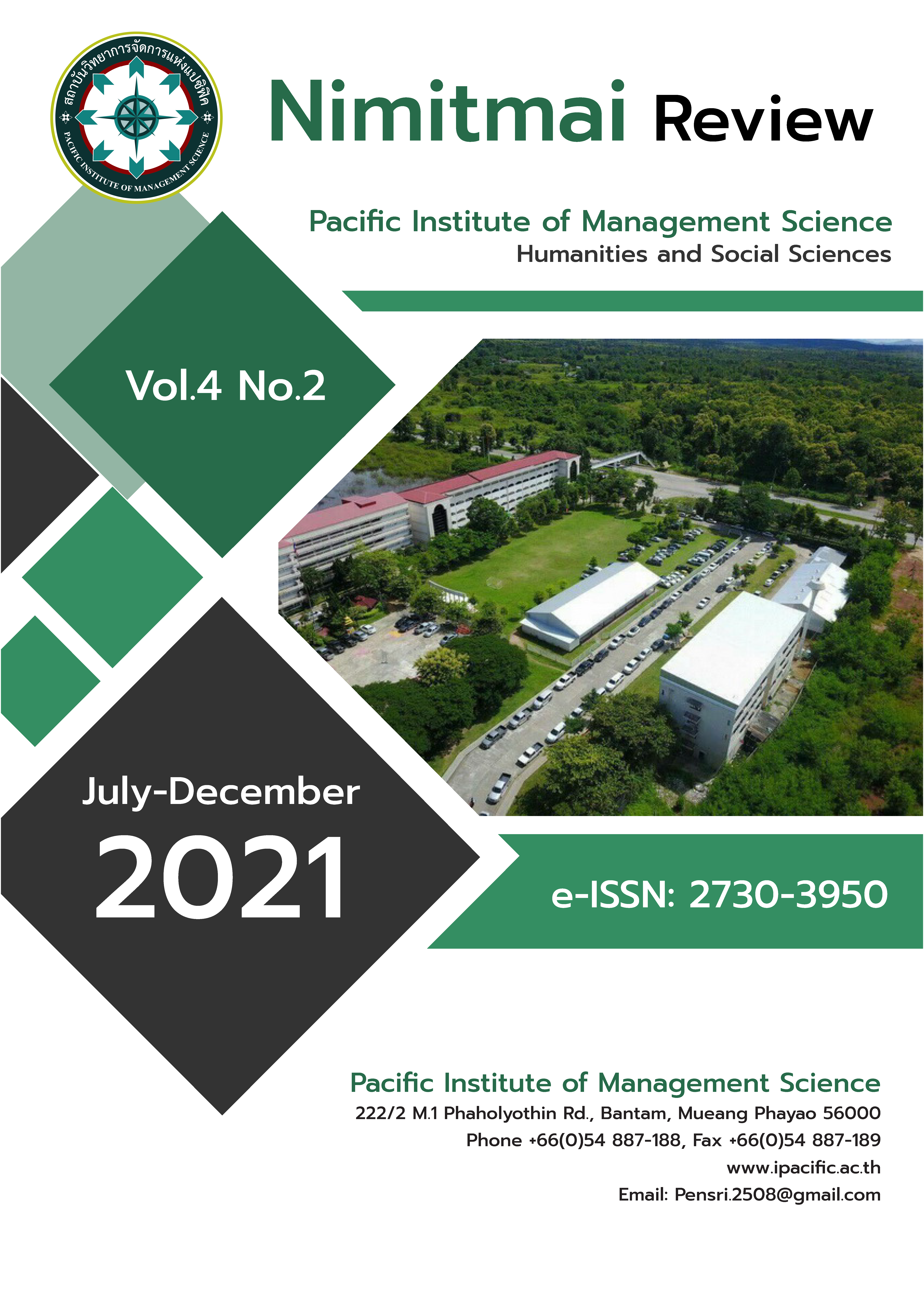Household Lifestyle Behaviors affecting Happiness and Satisfactions of Thai People
Keywords:
Household lifestyle behaviors of Thai people, Happiness, Satisfaction, ThaiAbstract
Objective: The purposes of this quantitative research were to study the household lifestyle behaviors of Thai people and to analyze factors relating to household lifestyle behaviors that affected Thai people’s happiness and satisfaction. Method: The data derived from the project "Survey of the quality of life of people in sustainability according to the principles of sufficiency economy 2018" by the National Statistical Office has been used as the secondary data. Data then were analyzed using multivariate correlation regression analysis and presented as percentage, mean, standard deviation, minimum, maximum, and factor analysis. Result: The results revealed that, from the 16 variables of the household lifestyle behaviors, there were three variables including Household Preparatory Behavior Index, Virtual World Knowledge Index, and Smart Knowledge significantly affected to happiness and satisfaction of Thai people (p-value =0.05). Moreover, all variables describe the variation in household lifestyle behaviors affecting happiness and satisfaction of Thai people at 15.6% (R2 = 0.156).
References
Artakorn Choeytim, Nuanwee Prasertsuk, and Urapree Kerdnai Mongkol. (2018). The happiness the Elderly in the Elderly Club, Bangkok. Integrated Social Science Journal, Faculty of Social Sciences and Humanities, Mahidol University, 5(1), 85-108. Retrieved from https://so02.tcithaijo.org/index.php/isshmu/article/view/153968
Chaipattana Foundation. (2007). Sufficiency Economy and New Theory. (online). Source:
Department of Older Persons, Ministry of Social Development and Human Security. (2019). Measures to drive the National Agenda on Aging Society (Revised Edition). 2nd Edition Bangkok: Amarin Printing and Publishing Public Co. Limited. Retrieved December 3, 2020, from http://www.dop.go.th/download/knowledge/th1551432930-155_0.pdf
Rogers, C. R., & Wood, J. K. (1974). Client-Centered Theory: Carl Rogers. In A. Burton (Ed.), Operational Theories of Personality (pp. 211-258). New York: Brunner/Mazel.
Office of the National Economic and Social Development Board. (2012). National Economic and Social Development Plan, No. 11. Office of the National Economic and Social Development Board. Bangkok.
National Statistical Office. Report on the 2017 survey of the older persons in Thailand. In:
Ministry of Digital Economy and Society Thailand; 2018.
National Economic and Social Development Board. (2007). Philosophy of Sufficiency Economy. (1st printing). Bangkok: 21 Century Publishing. Retrieved from
https://www.nesdc.go.th/ewt_w3c./ewt_dl_link.php?nid=2618
Phaksajiporn Khanthong et al. (2017). Happiness and Life Satisfaction of the Elderly in
Nong Khon Sub-district. Muang District, Ubon Ratchathani Province. Journal of Thai Medicine Research, 3(2), 7-15.
Pikul Phoomkokrak. (2016). Student's lifestyle behavior according to the Sufficiency
Economy Philosophy. Nakhon Ratchasima Rajabhat University. Journal of the Humanities and Social Sciences Surin Rajabhat University, 20(special), 215-227.
Downloads
Published
Versions
- 2022-02-25 (2)
- 2021-12-24 (1)
How to Cite
Issue
Section
License

This work is licensed under a Creative Commons Attribution-NonCommercial-NoDerivatives 4.0 International License.



